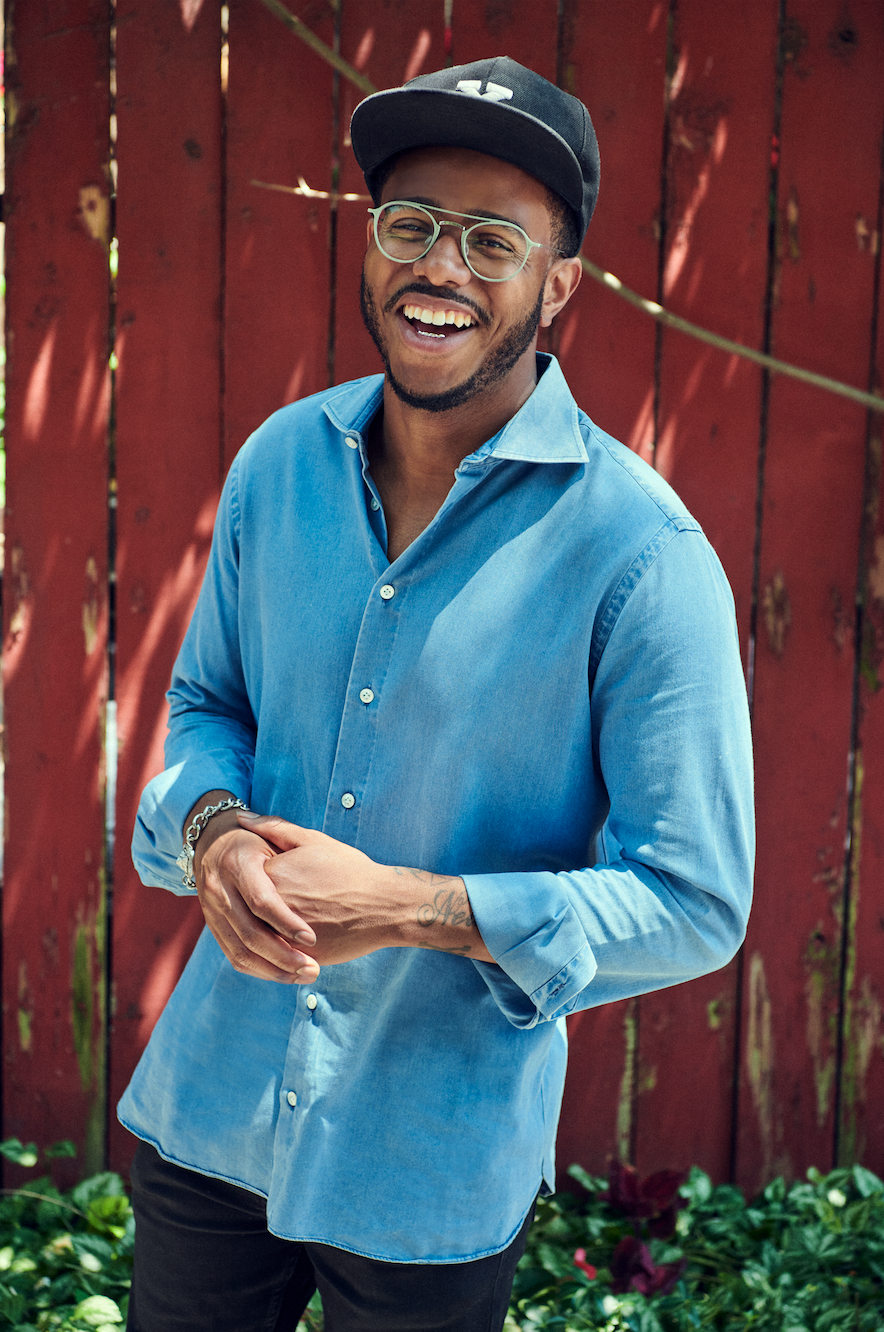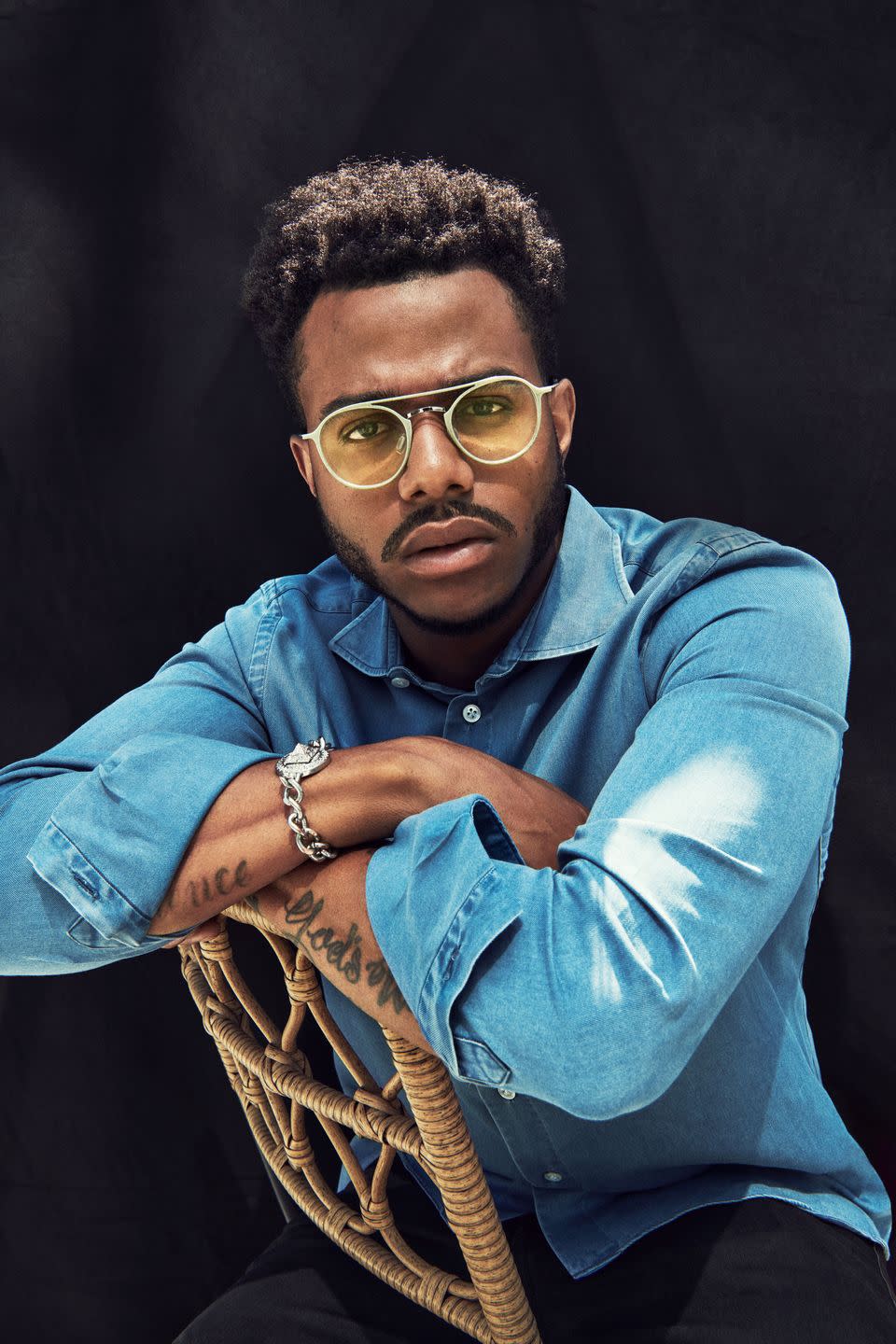I Was a Black Chef in Fine Dining. Now I'm Not Sure What's Next.
When I was nine years old, I first created something that made me think I could cook for a living. The recipe was from Food & Wine magazine—a shrimp-and-chicken dish with a hoisin curry sauce, served with macaroni. Instead of macaroni, I did it with jasmine rice. I added some heat with scotch bonnet chillies, topped it with fresh herbs, and finished it with a little lime for acidity. I didn’t just make the recipe. I made it my own.
I’d learned this from my mom. I would watch her adjust recipes and tweak seasonings until she felt like she had perfected a dish. You can taste that patience and dedication in her gumbo.
She saves up the shrimp shells from the week to go into her homemade stock. She makes her own Creole spice blend. She takes the time to slow-stir the roux. She applied this dedication to her own catering company, which she ran out of our apartment in the Bronx. I’d help her prep and pack up meals, and I’d then watch that food bring people together at an event. I’d watch that food make people happy.
Those memories stuck with me through tough times I had as a teen. Shortly after I made that hoisin curry, my mom sent me to live in Nigeria with my grandfather because she thought I was headed down a wrong path. And I was. When I returned to New York City two years later, I joined a gang. I sold drugs. I went to college but dropped out.

And then in January 2009, I watched Barack Obama’s inauguration as president. I left the gang. I stopped selling drugs and started selling candy on the subway. And inspired by my mom’s entrepreneurial spirit, I opened my own catering company, Onwuachi’s Coterie Catering, which I ran for about a year until I worked up enough money to enroll at the Culinary Institute of America.
There I cooked my way through a rigid, French-based curriculum—béarnaise sauces, demi-glaces, soufflés. And after stints at Thomas Keller’s Per Se and Daniel Humm’s Eleven Madison Park, I opened my own restaurant, Shaw Bijou, in Washington, D. C., in 2016. In what was a humbling experience, Shaw closed in less than three months.
I’ve had a lot of people tell me that I wouldn’t amount to anything. It’s happened throughout my career, and it’s pushed me to prove them wrong. When Shaw opened, many people in the press said that I was too young.
But I couldn’t help but wonder if it was that I was too young and Black. Racism plays out in the subtle way things are said—and who is saying it. And it doesn’t have to be something that anyone has said. It’s loud and clear.
When I opened Kith and Kin in 2017, my introspection resulted in a different menu. I cooked Afro-Caribbean dishes in a fine-dining atmosphere.
I made jollof rice, which I ate in Nigeria with my grandfather, but I threw in a little crabmeat and served it beside a rib eye. I braised Jamaican oxtails and doused them with an allspice-forward jus.

And I served my mom’s gumbo. The only thing I changed was that I added a little chicken stock to improve the mouthfeel. But it was her recipe.
Before COVID-19, I would watch our guests connect over food. I’d watch a table of Nigerian people show a table of white people how to eat fufu and stew. I’d witness guests who thought that they’d had jerk chicken realize that they’d actually never had jerk chicken. And under COVID-19, when Kith and Kin was open only for dine-in on the weekends, the same guests would return for a stripped-down version of the meals: a choice of protein; a choice of peas, rice, or plantains; a vegetable; and mango chutney.
With COVID-19 and the social-justice movement, my mission is morphing into something else. It would be foolish for me not to use this moment of reflection to help save not only the restaurant industry but also the Black restaurant industry. Restaurants can be activated to help communities. That’s why I want to be a chef in a restaurant that I own myself. So that way I can control my own narrative.
I’m still processing all this, honestly, but I’m happy to see all the people rallying in streets and on social media. There are people who want to see things change and are willing to do the work to do so. People who remind me of my mom.
You Might Also Like

